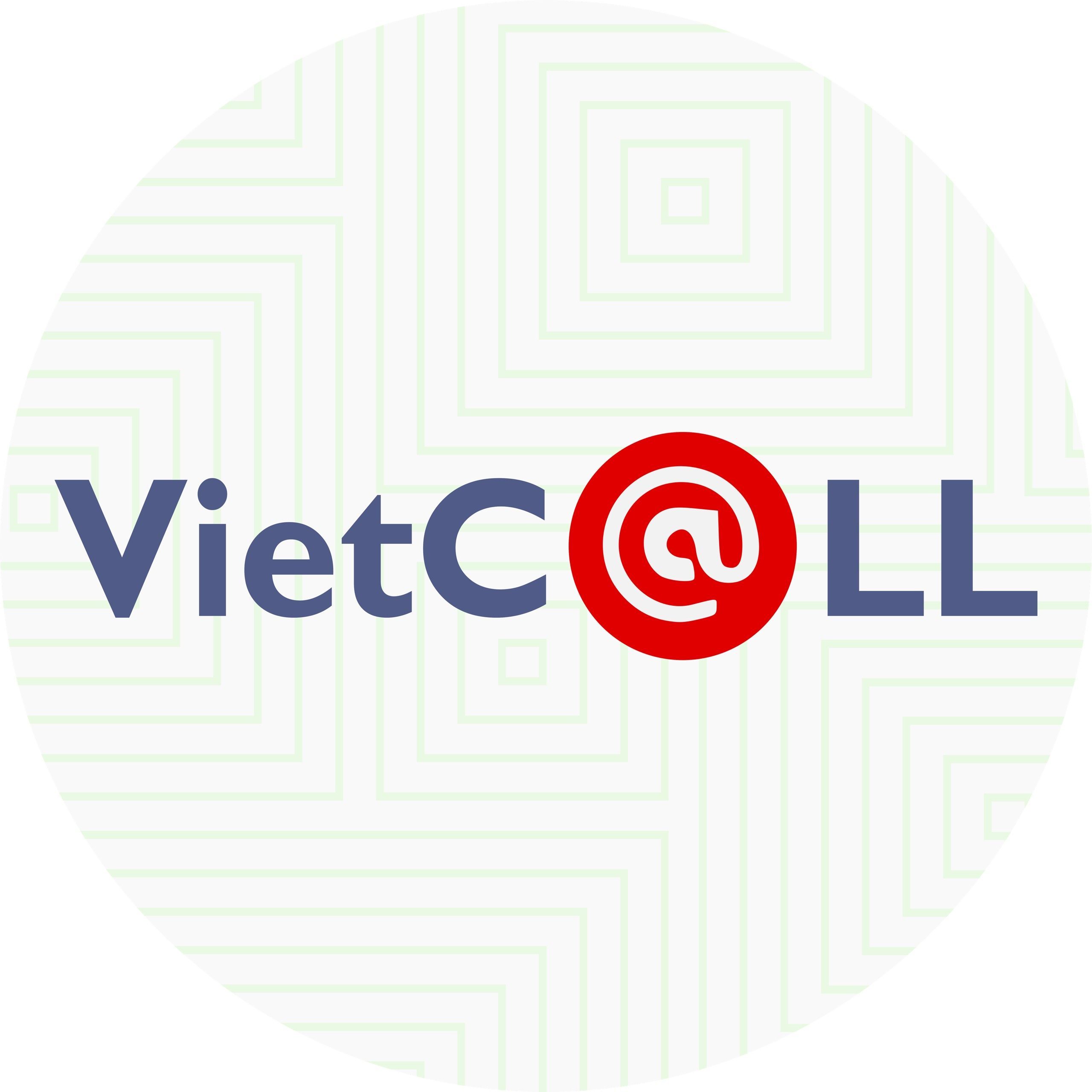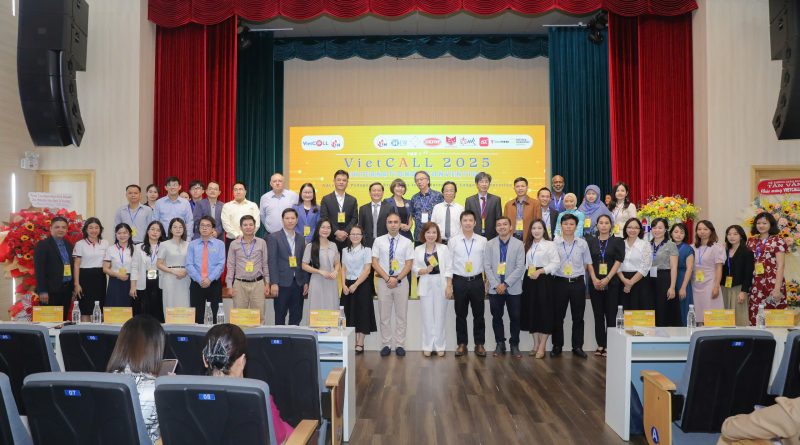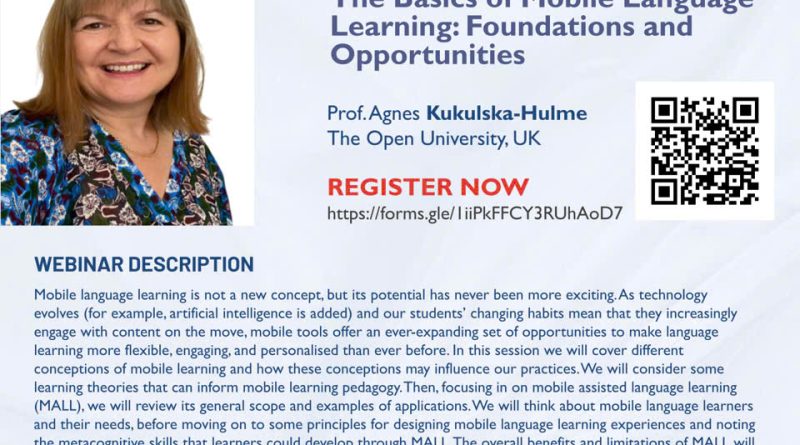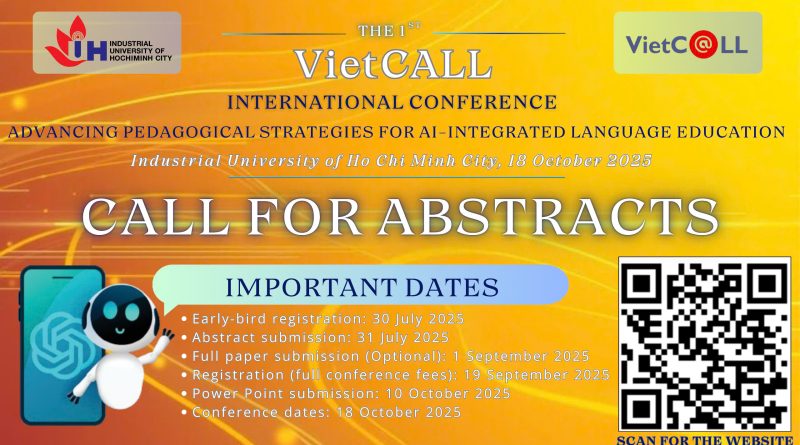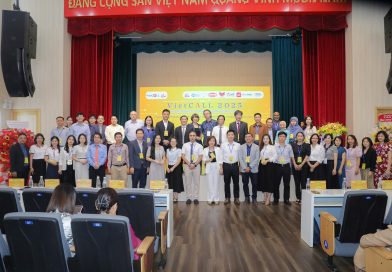VietCALL International Convention (VietCALL2025)
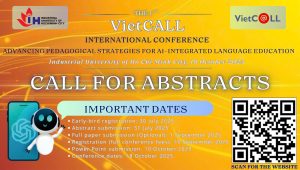
Dear colleagues,
VietCALL is delighted to announce the inaugural VietCALL International Convention, a significant milestone designed to foster innovation and collaboration in the field of language education and technology. With the dynamic theme “Advancing Pedagogical Strategies for AI-Integrated Language Education,” this groundbreaking conference aims to explore and expand the transformative potential of artificial intelligence within language teaching and learning environments.
The purpose of the conference is to create a vibrant international forum where educators, linguists, researchers, technologists, and policymakers from diverse backgrounds can come together to exchange knowledge, share pioneering research findings, discuss best practices, and identify opportunities and challenges associated with integrating AI into language pedagogy.
AI tools have significantly reshaped language teaching and learning by personalizing educational experiences, enhancing interactive and immersive learning environments, and providing sophisticated analytics for both learners and educators. These tools can address diverse learning needs, foster learner autonomy, enhance motivation and engagement, and streamline assessment and feedback processes, thus revolutionizing traditional pedagogical approaches and outcomes.
Conference Details:
- Date: 18th October 2025
- Venue: Industrial University of Ho Chi Minh City, 12 Nguyen Van Bao, Go Vap District, Ho Chi Minh City, Vietnam.
- Theme: Advancing Pedagogical Strategies for AI-Integrated Language Education
Theme: Advancing Pedagogical Strategies for AI-Integrated Language Education
Sub-themes include but are not limited to:
- Innovations and Emerging Trends in Language Teaching and Learning
- Theoretical and Practical Advances in Languages & Linguistics
- State-of-the-Art Computer-Assisted Language Learning (CALL)
- Application and Evaluation of AI Tools in Language Education
- Effective Integration and Assessment of Technological Innovations in Classroom Settings
- Pedagogical Challenges and Solutions in AI-Enhanced Language Learning
Important Dates 🎟️
- Call for Papers: 10 April 2025
- Abstract Submission: 10 April 2025 –
31 July 202515 August 2025– 31 August 2025 - Notification of Acceptance: 10 August 2025
- Early Bird Registration: 30 July 2025
- Registration: 19 September 2025
- Full Paper Submission: 1 September 2025
- PowerPoint Submission: 10 October 2025
- Conference Dates: 18th October 2025
Publication
Types of Presentations
- Research presentation
- Workshop
- Poster presentation
Why Should You Attend?
This international gathering offers an unparalleled opportunity for participants to engage with thought leaders, pioneers, and fellow educators passionate about enhancing language education through technology. Attendees will:
- Gain firsthand insights into cutting-edge developments and pioneering research on AI integration in language education.
- Participate in stimulating discussions, interactive workshops, and thought-provoking sessions led by international experts.
- Network with a global community of professionals committed to improving language learning outcomes using advanced technologies.
- Collaborate on potential future projects and partnerships to drive innovation and educational excellence forward.
We are excited to welcome you to a conference that promises worldwide inspiration, collaboration, and lasting impact on language education.
Welcome remarks from the president
Dr. Bao Kham, President of VietCALL, Hue University
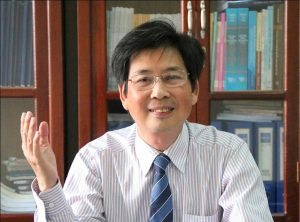 Dr. Bao Kham is the president of VietCALL. He is the Editor-in-Chief of the Journal of Inquiry into Languages and Cultures and a lecturer in English Language Teaching at the University of Foreign Languages & International Studies, Hue University. He used to be the Rector of the University of Foreign Languages, Hue University. He got his Master’s degree from the University of Sydney and his doctoral degree from La Trobe University, Australia. His main research focus is on teacher socialization, pre-service and in-service teacher education. He is an IT enthusiast with extensive experience designing, developing & delivering blended teacher preparation courses and ELT materials and sourcebooks.
Dr. Bao Kham is the president of VietCALL. He is the Editor-in-Chief of the Journal of Inquiry into Languages and Cultures and a lecturer in English Language Teaching at the University of Foreign Languages & International Studies, Hue University. He used to be the Rector of the University of Foreign Languages, Hue University. He got his Master’s degree from the University of Sydney and his doctoral degree from La Trobe University, Australia. His main research focus is on teacher socialization, pre-service and in-service teacher education. He is an IT enthusiast with extensive experience designing, developing & delivering blended teacher preparation courses and ELT materials and sourcebooks.
Keynote 1
Dr Willy A Renandya, NIE-NTU, SUSS and RELC, Singapore
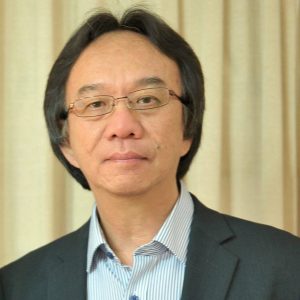 Dr Willy A Renandya is a language teacher educator with extensive teaching experience in Asia. He currently teaches language education courses in Singapore, including at NIE-NTU, SUSS and RELC. He is also a visiting professor at Chulalongkorn University and Wuhan University. He has given numerous keynote presentations at international ELT conferences, including AsiaTEFL, IATEFL, KOTESOL, SEAMEO RELC and ThaiTESOL. He has published extensively in the area of second language education and second language acquisition. His publications include Language Teaching Methodology: An anthology of current practice (2002, Cambridge University Press) and Student-centred cooperative learning (2019, Springer International). He maintains a large teacher professional development forum called Teacher Voices: https://www.facebook.com/groups/teachervoices/.
Dr Willy A Renandya is a language teacher educator with extensive teaching experience in Asia. He currently teaches language education courses in Singapore, including at NIE-NTU, SUSS and RELC. He is also a visiting professor at Chulalongkorn University and Wuhan University. He has given numerous keynote presentations at international ELT conferences, including AsiaTEFL, IATEFL, KOTESOL, SEAMEO RELC and ThaiTESOL. He has published extensively in the area of second language education and second language acquisition. His publications include Language Teaching Methodology: An anthology of current practice (2002, Cambridge University Press) and Student-centred cooperative learning (2019, Springer International). He maintains a large teacher professional development forum called Teacher Voices: https://www.facebook.com/groups/teachervoices/.
Website: Willy’s ELT Corner https://www.willyrenandya.com
Google Scholar: https://scholar.google.com.sg/citations?user=gHW1fVIAAAAJ
Keynote 2
Dr. Nguyen Xuan Hong, Vice President of Industrial University of Ho Chi Minh City, Vietnam
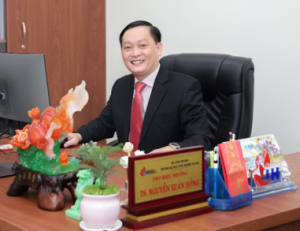 Dr. Nguyen Xuan Hong is Vice President of Industrial University of Ho Chi Minh City (IUH), Vietnam. He earned his M.A. in TESOL from the University of Canberra, Australia, and his Ph.D. in Comparative Linguistics from the University of Social Sciences and Humanities, Vietnam National University of Ho Chi Minh City. He has more than 25 years of teaching English to graduate and postgraduate students. He specializes in educational management, language education, language teaching methodology, and innovation. Apart from publishing various research papers in national and international journals and conferences, he has also been a reviewer for some national and international journals. His research interests include English teaching methodology, integrating AI into language teaching and learning, using digital technologies in language teaching and learning, political discourse analysis, cognitive linguistics, conceptual metaphors, cultural linguistics, and cultural conceptualization.
Dr. Nguyen Xuan Hong is Vice President of Industrial University of Ho Chi Minh City (IUH), Vietnam. He earned his M.A. in TESOL from the University of Canberra, Australia, and his Ph.D. in Comparative Linguistics from the University of Social Sciences and Humanities, Vietnam National University of Ho Chi Minh City. He has more than 25 years of teaching English to graduate and postgraduate students. He specializes in educational management, language education, language teaching methodology, and innovation. Apart from publishing various research papers in national and international journals and conferences, he has also been a reviewer for some national and international journals. His research interests include English teaching methodology, integrating AI into language teaching and learning, using digital technologies in language teaching and learning, political discourse analysis, cognitive linguistics, conceptual metaphors, cultural linguistics, and cultural conceptualization.
Presentation title: Application of Artificial Intelligence (AI) in Foreign Language Testing and Assessment: Case Study at Some Universities in Viet Nam
Keynote 3
Assoc. Prof. Dr. Nguyen Ngoc Vu, Vice President of VietCALL, Vice President of HUFLIT
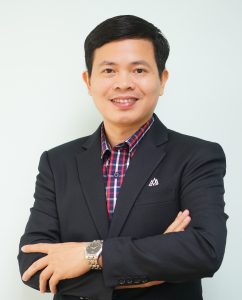 Associate Professor. Dr. Nguyen Ngoc Vu is currently Vice-President of Ho Chi Minh City University of Foreign Languages – Information Technology (HUFLIT), and Chairman of STESOL, founded by the Association of Vietnamese Universities and Colleges. With training experience from more than 25 countries, his main expertise is building digital transformation competency and providing consultation services to higher education institutions and businesses across Vietnam. He won the Vietnam Technology Innovation Award in 2012 and was recognized as a Vietnam Microsoft Innovative Educator (MIE) Master Trainer in 2014. His research interests include computational linguistics, cognitive linguistics, computer-assisted language learning, and ELT methodology. (Orcid) (Google Scholar)
Associate Professor. Dr. Nguyen Ngoc Vu is currently Vice-President of Ho Chi Minh City University of Foreign Languages – Information Technology (HUFLIT), and Chairman of STESOL, founded by the Association of Vietnamese Universities and Colleges. With training experience from more than 25 countries, his main expertise is building digital transformation competency and providing consultation services to higher education institutions and businesses across Vietnam. He won the Vietnam Technology Innovation Award in 2012 and was recognized as a Vietnam Microsoft Innovative Educator (MIE) Master Trainer in 2014. His research interests include computational linguistics, cognitive linguistics, computer-assisted language learning, and ELT methodology. (Orcid) (Google Scholar)
Presentation title: Assoc. Prof. Dr. Nguyen Ngoc Vu, Vice President of VietCALL, Vice President of HUFLIT
Featured talk 1
Anisia Katinskaia, Senior Data Scientist, Reseacher Swiss Data Science Center (EPFL), University of Helsinki, Switzerland
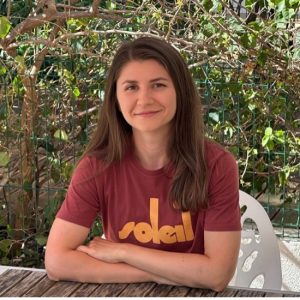 Anisia Katinskaia is a Senior NLP Data Scientist at the Swiss Data Science Center (EPFL & ETH Zurich) and holds a PhD in Computer Science from the University of Helsinki. Her research centers on natural language processing for education, with a focus on fair, robust evaluation of learner language and building systems that adapt to learners rather than constrain them. At Helsinki, she co-developed Revita, an intelligent tutoring system for language learning, and conducted research on grammatical error detection and correction, text difficulty estimation, text simplification, low-resource NLP, tokenization for language models, and model interpretability via probing.
Anisia Katinskaia is a Senior NLP Data Scientist at the Swiss Data Science Center (EPFL & ETH Zurich) and holds a PhD in Computer Science from the University of Helsinki. Her research centers on natural language processing for education, with a focus on fair, robust evaluation of learner language and building systems that adapt to learners rather than constrain them. At Helsinki, she co-developed Revita, an intelligent tutoring system for language learning, and conducted research on grammatical error detection and correction, text difficulty estimation, text simplification, low-resource NLP, tokenization for language models, and model interpretability via probing.
At the Swiss Data Science Center, she works on applied NLP projects in high-impact domains, including knowledge extraction from unstructured biodiversity text and the automation of cancer registry processing. Her current research interests include trustworthy AI for scientific discovery, knowledge graphs, and AI research assistants that support scientific reasoning and discovery.
She has contributed to the CALL/NLP community through publications and reviewing at venues such as ACL, NAACL, and BEA, and through mentoring students from diverse backgrounds. Looking ahead, her work aims to bridge advanced NLP with inclusive, learner-centered applications and to develop AI systems that empower both education and scientific innovation.
Presentation title: When More Than One Answer is Correct: Lessons for AI in Education
Featured talk 2
Prof. Linda Harasim, Professor Emeritus, Online Education Pioneer, AI & Learning Theory Expert, Simon Fraser University, Canada
 Prof. Linda Harasim is a distinguished scholar in education, holding a Ph.D. in Educational Theory from the University of Toronto (1983) and both an M.A. and B.A. from the University of Alberta. He served as Full Professor at the School of Communication, Simon Fraser University from 1996 to 2022 and is now Professor Emeritus. As Network Leader and CEO of the TeleLearning Network of Centres of Excellence (1995–2002), he directed a $26 million research program involving 80 faculty from 24 universities, advancing theory, pedagogy, and technology in digital education. Appointed by Queen Elizabeth II, he served as a Council Member for the Social Sciences and Humanities Research Council of Canada (1996–2002). A pioneer in online education, he developed the first virtual learning environment (Virtual-U) and designed collaborative learning pedagogies for higher education and corporate training. Author of eight books, including Learning Theory and Online Technologies, over 100 scholarly articles, and 50+ keynote addresses, his current focus is on integrating AI with online collaborative learning while maintaining human-centered approaches.
Prof. Linda Harasim is a distinguished scholar in education, holding a Ph.D. in Educational Theory from the University of Toronto (1983) and both an M.A. and B.A. from the University of Alberta. He served as Full Professor at the School of Communication, Simon Fraser University from 1996 to 2022 and is now Professor Emeritus. As Network Leader and CEO of the TeleLearning Network of Centres of Excellence (1995–2002), he directed a $26 million research program involving 80 faculty from 24 universities, advancing theory, pedagogy, and technology in digital education. Appointed by Queen Elizabeth II, he served as a Council Member for the Social Sciences and Humanities Research Council of Canada (1996–2002). A pioneer in online education, he developed the first virtual learning environment (Virtual-U) and designed collaborative learning pedagogies for higher education and corporate training. Author of eight books, including Learning Theory and Online Technologies, over 100 scholarly articles, and 50+ keynote addresses, his current focus is on integrating AI with online collaborative learning while maintaining human-centered approaches.
Presentation title: Online Collaborative Learning (OCL): A Professional Abstract
Featured talk 3
Bin Zou, Senior Associate Professor, Xi’an Jiaotong-Liverpool University, China
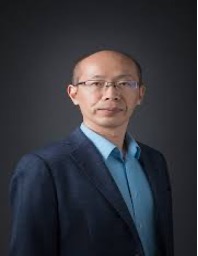 Dr. Bin Zou received his PhD degree in Computer-Assisted Language Learning from the University of Bristol and his MA from the University of York, UK. He is the director of MA TESOL and PhD supervisor at the Department of Applied Linguistics, Xi’an Jiaotong-Liverpool University, China. He is the Co-Editor-in-Chief of the International Journal of Computer-Assisted Language Learning and Teaching (Indexed by ESCI and Scopus; IF:1.0; Citescore: 3.1). He is also theCo-Editor-in-Chief of the International Journal of EAP: Research and Practice. Dr. Zou’s research interests include AI, CALL, ELT and EAP. He has given a number of keynote presentations at international and national conferences. He has over 70 publications, including books, journal papers, and chapters. In the past three years, he has published more than 20 papers in AI, including 15 papers in SSCI journals such as Computer Assisted Language Learning, Computers in Human Behavious, System, Journal of English for Academic Purposes, International Journal of Applied Linguistics, SAGE Open,Learning and Motivation, European Journal of Education, etc. He is an executive committee member of the China CALL Association and a committee member of the China Education Technology for EFL Association. He has developed an AI Platform for EFL speaking evaluation.
Dr. Bin Zou received his PhD degree in Computer-Assisted Language Learning from the University of Bristol and his MA from the University of York, UK. He is the director of MA TESOL and PhD supervisor at the Department of Applied Linguistics, Xi’an Jiaotong-Liverpool University, China. He is the Co-Editor-in-Chief of the International Journal of Computer-Assisted Language Learning and Teaching (Indexed by ESCI and Scopus; IF:1.0; Citescore: 3.1). He is also theCo-Editor-in-Chief of the International Journal of EAP: Research and Practice. Dr. Zou’s research interests include AI, CALL, ELT and EAP. He has given a number of keynote presentations at international and national conferences. He has over 70 publications, including books, journal papers, and chapters. In the past three years, he has published more than 20 papers in AI, including 15 papers in SSCI journals such as Computer Assisted Language Learning, Computers in Human Behavious, System, Journal of English for Academic Purposes, International Journal of Applied Linguistics, SAGE Open,Learning and Motivation, European Journal of Education, etc. He is an executive committee member of the China CALL Association and a committee member of the China Education Technology for EFL Association. He has developed an AI Platform for EFL speaking evaluation.
Presentation title: Using Generative Artificial Intelligence (GAI) to enhance in EFL learning and teaching
Panel discussion
Assoc. Prof. Dr. Nguyen Van Long, Vice President of VietCALL, Rector at the University of Foreign Language Studies, The University of Danang
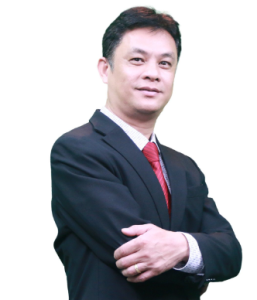 AAssoc. Prof. Dr. Long V Nguyen is Vice-Rector at the University of Foreign Language Studies, The University of Danang, where he has worked as a lecturer since the late 90s. Recently, he has actively participated in various National Foreign Languages Project activities as a CALL specialist and VietCALL vice president. Long received his MA in TESOL Studies from the University of Queensland in 2005 and his PhD in Applied Linguistics (Specialized in Computer-Assisted Language Learning – CALL) at Massey University. Long has been at Microsoft MIE and PIL since 2012 and has received several outstanding grants for his research contributions. He has published widely in educational technology and communication in foreign language learning and teaching, sociocultural perspectives in language education, digital literacy, collaborative learning, and language teacher education. (Scopus), (Orcid), (Google Scholar)
AAssoc. Prof. Dr. Long V Nguyen is Vice-Rector at the University of Foreign Language Studies, The University of Danang, where he has worked as a lecturer since the late 90s. Recently, he has actively participated in various National Foreign Languages Project activities as a CALL specialist and VietCALL vice president. Long received his MA in TESOL Studies from the University of Queensland in 2005 and his PhD in Applied Linguistics (Specialized in Computer-Assisted Language Learning – CALL) at Massey University. Long has been at Microsoft MIE and PIL since 2012 and has received several outstanding grants for his research contributions. He has published widely in educational technology and communication in foreign language learning and teaching, sociocultural perspectives in language education, digital literacy, collaborative learning, and language teacher education. (Scopus), (Orcid), (Google Scholar)
 Nguyen Thi Lan Huong, MA, Vice President of VietCALL, Vice-Director of the Office of Cooperation and Development, VNU University of Languages and International Studies, Deputy Director, VietTESOL Association Secretariat
Nguyen Thi Lan Huong, MA, Vice President of VietCALL, Vice-Director of the Office of Cooperation and Development, VNU University of Languages and International Studies, Deputy Director, VietTESOL Association Secretariat
Ms. Huong Nguyen is a leader in Information and Communications Technology in language teaching in Vietnam, a senior technology expert, and a teacher trainer at the VNU University of Languages and International Studies. She has joined various teacher training projects, including the blended teacher development project that is based on Vietnam’s Foreign Language Teacher Competencies Framework. Her research interests focus on teacher professional development, technology-enhanced learning, and blended learning.
Assoc. Prof. Dr. Pham Vu Phi Ho, Vice President of VietCALL, Industrial University of Ho Chi Minh City, Vietnam
 Assoc. Prof. Pham Vu Phi Ho, Ph.D., Faculty of Foreign Languages, Industrial University of Ho Chi Minh City, Vietnam, used to be a Vice-President of Ba Ria – Vung Tau University and Vice-President at Van Hien University, Vietnam. Pham has published more than 70 research articles in both local and International Journals, such as Computer-Assisted language Learning, SAGE Open, System, and Journal of Psycholinguist Research (17 Scopus/14 ISI), and 10 books and course-books, 3-course books were used for both the undergraduate and graduate levels at Van Lang University, HCMC Open University, Vietnam, and Lourdes College, Higher Education Department, Cagayan de Oro City, Philippines. He has international experience in teaching English at Suranaree University of Technology, Thailand, and Gyeongju University, South Korea. He is the Vice President for Administrative Affairs of AsiaCALL. He is now the Editor-in-Chief of the International Journal of TESOL & Education. He is the editor-in-chief for several proceedings published by Atlantis Press, part of Springer. He is an editorial staff for the Suranaree Journal of Social Science (Scopus), and a peer reviewer for some international Journals indexed in ISI/Scopus such as Computer Assisted Language Learning, Open Sage… He is an editor of an Edited Book published by Springer, and now an editor for another Edited Book of the IGI Global, entitled “Implementing AI Tools for Language Teaching and Learning”, and an Edited Book entitled “Empowering Educators: Integrating AI Tools for Personalized Language Instruction”, which will be published by Springer Nature (Scopus), (ISI), (Google Scholar).
Assoc. Prof. Pham Vu Phi Ho, Ph.D., Faculty of Foreign Languages, Industrial University of Ho Chi Minh City, Vietnam, used to be a Vice-President of Ba Ria – Vung Tau University and Vice-President at Van Hien University, Vietnam. Pham has published more than 70 research articles in both local and International Journals, such as Computer-Assisted language Learning, SAGE Open, System, and Journal of Psycholinguist Research (17 Scopus/14 ISI), and 10 books and course-books, 3-course books were used for both the undergraduate and graduate levels at Van Lang University, HCMC Open University, Vietnam, and Lourdes College, Higher Education Department, Cagayan de Oro City, Philippines. He has international experience in teaching English at Suranaree University of Technology, Thailand, and Gyeongju University, South Korea. He is the Vice President for Administrative Affairs of AsiaCALL. He is now the Editor-in-Chief of the International Journal of TESOL & Education. He is the editor-in-chief for several proceedings published by Atlantis Press, part of Springer. He is an editorial staff for the Suranaree Journal of Social Science (Scopus), and a peer reviewer for some international Journals indexed in ISI/Scopus such as Computer Assisted Language Learning, Open Sage… He is an editor of an Edited Book published by Springer, and now an editor for another Edited Book of the IGI Global, entitled “Implementing AI Tools for Language Teaching and Learning”, and an Edited Book entitled “Empowering Educators: Integrating AI Tools for Personalized Language Instruction”, which will be published by Springer Nature (Scopus), (ISI), (Google Scholar).Submission Guidelines:
- Abstracts: Up to 170 words, including keywords.
- Full Papers: Between 6,000 and 8,000 words, following APA 7th edition formatting.
- Submission Portal: https://vietcall.edu.vn/submission
Contact information:
For further information, please visit our website or contact the conference organizers at
Email: lanhuongnckh@gmail.com (Ms. Huong); conference@vietcall.edu.vn
Tel: (+84) 988049988 (Ms Huong)
WhatApps: (+84) 909850699 (Pham Ho)
